‘I would take him to Stutthof and show him the gas chambers’: the Jewish survivors educating Holocaust deniers
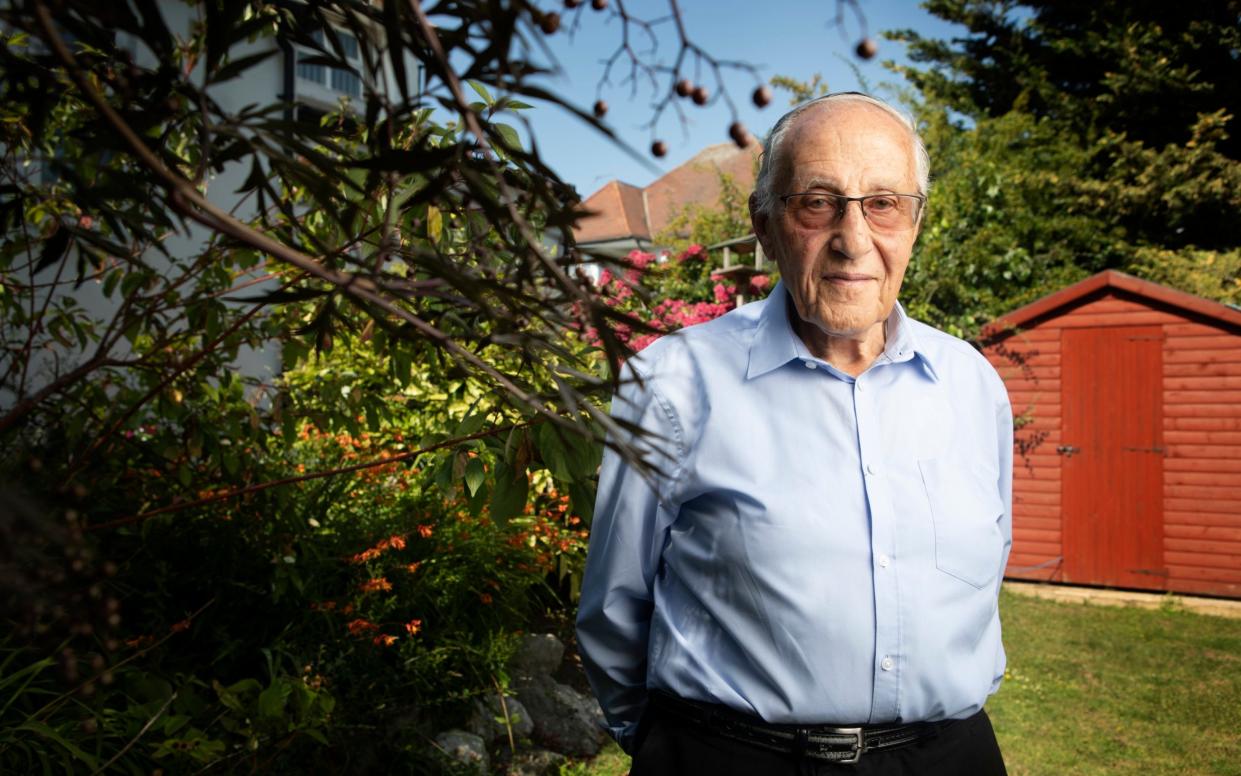
- Oops!Something went wrong.Please try again later.
- Oops!Something went wrong.Please try again later.
When Dov Forman, one of Lily Ebert’s 37 great-grandchildren, proposed they join TikTok in 2021 to share her educational message with the world, the Auschwitz survivor had a simple response: “I’ll make videos with you – but I’m not dancing.” He wanted to help her fulfil her lifelong promise to herself that “if by any chance I survive”, she would tell the world the truth about the death camp. What neither of them considered was the avalanche of abuse that would come their way.
“Very quickly, we began to encounter a huge amount of Holocaust denial and distortion, people calling me and my great-grandmother liars, talk of the ‘Holohoax’,” says 20-year-old Forman, who with Ebert, 99, has since amassed 2.1 million followers.
In the wake of the October 7 pogrom in Israel – the largest massacre of Jews since the Nazi genocide that took the lives of Ebert’s mother, brother and sister – Forman says he “didn’t open TikTok for a few days because I was too afraid to do so, knowing the private messages I would receive. Some have been passed on to the police.”
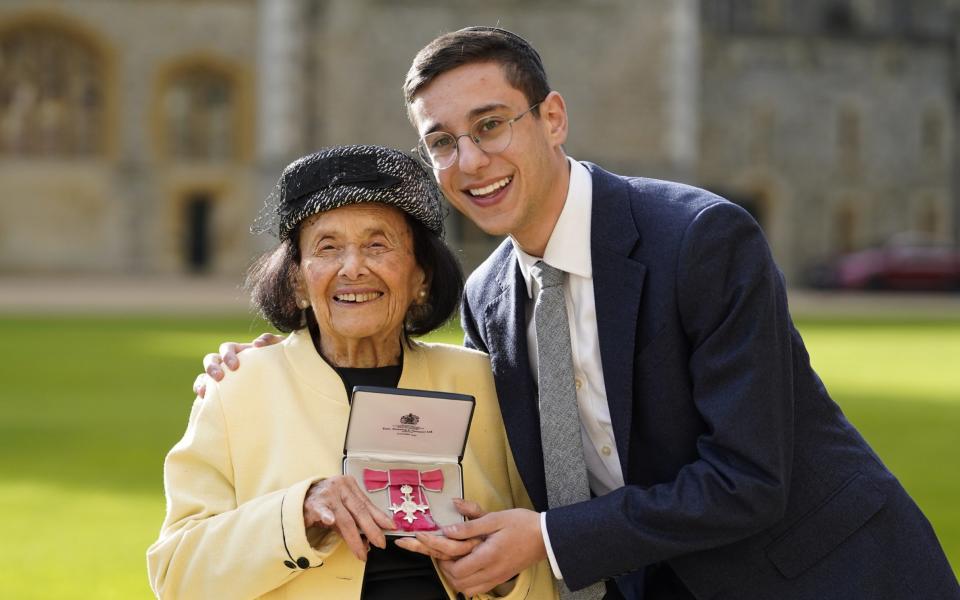
It all means the politics student is far from shocked by the results of a survey published last week by The Economist and YouGov. A fifth of Americans aged between 18 and 29 believe that the Holocaust is a myth (a further 30 per cent said that they did not know). The proportion dropped to eight per cent for those aged 30 to 44; two per cent for 45 to 64; and zero for over-65s.
Ignorance about the Shoah is not confined to the other side of the Atlantic. A 2020 YouGov survey found that twice as many British 50 to 64-year-olds know “a great deal” about the Holocaust as 18 to 24-year-olds. A 2021 poll of UK adults found 52 per cent did not know that six million Jews were murdered (more than a fifth thought it was two million or fewer).
And in 2022, UCL research found that the novel The Boy in the Striped Pyjamas was used by more than a third of teachers in England in lessons on the Holocaust – despite the risk it “can perpetuate a number of dangerous inaccuracies and fallacies”. The research reported that the story regularly inadvertently elicited misplaced sympathy for Nazis.
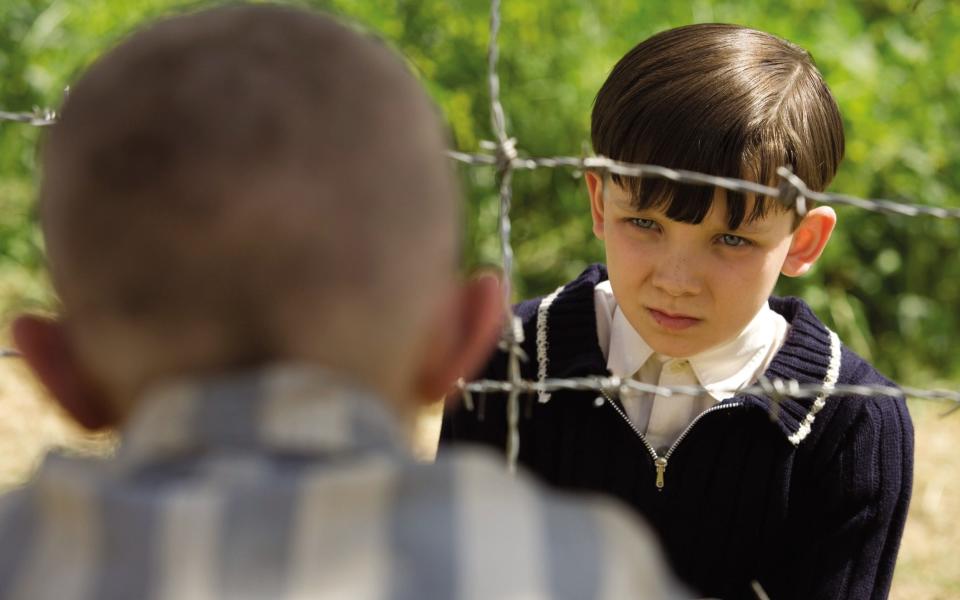
The National Socialists came to power when German-born Manfred Goldberg was just two. He survived mass shootings, a concentration camp and a death march and when he arrived in the UK in 1946, aged 16: “I thought I had come to utopia, to paradise. People were so understanding and sympathetic. And I really believed all the politicians who went around in this country saying: ‘Never again’.”
As he speaks of the situation today, at his home in north London, the 93-year-old has a look of incomprehension on his face. “The number of people who do not believe the evidence of the Holocaust, which is plainly before their eyes, is staggering.”
Referring to the recent poll, he says that denial has mutated from the preserve of “early nutters” such as David Irving – who lost a famous libel case in 2000 when a judge described the historian as “an active Holocaust denier” – to catchy content that can spread like wildfire online.
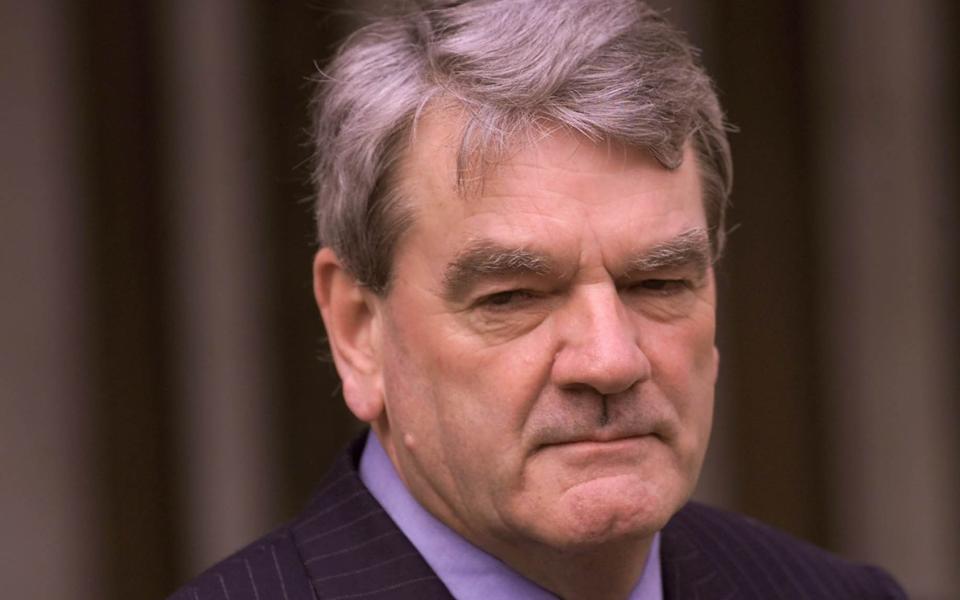
“All these people have had almost 20 years of listening to lies emanating from social media. Facebook and YouTube began in the early 2000s and over this period, all these websites could have been a blessing to our lives. In fact, they have permitted these fabrications to be spewed 24 hours a day. The Nazis could only dream of a medium like this. A whole generation has been mentally distorted.” He adds: “More and more now, I read that some people do not believe October 7 ever happened. People are still mourning for their relatives.”
I ask Goldberg how he would respond to someone who denies the Holocaust not out of malice but sheer ignorance. His mind goes straight to “the most brutal camp I had been in during the war”, in Poland. There, unlike most other factories of death, the Nazis failed to destroy the evidence of their worst crimes.
“I would take him by the scruff of the neck,” says Goldberg, “and buy him and me a ticket to Stutthof and show him: ‘This is the gas chamber and that is the crematorium. Look at it and now tell me that it’s all a big Jewish lie.’ There is incontrovertible evidence.”
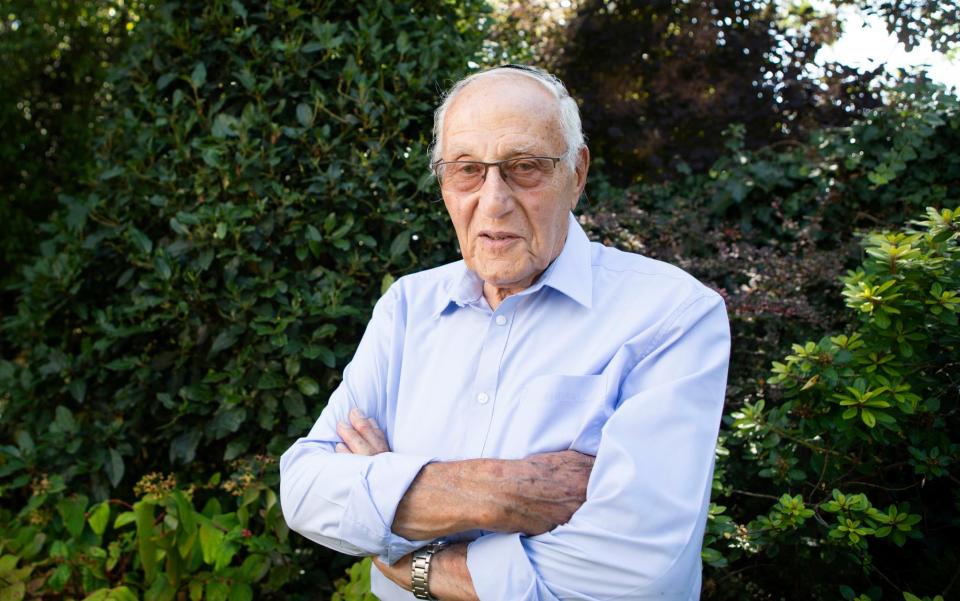
According to Ofcom, TikTok is the most used single source of news for 12 to 15-year-olds. A survey by data intelligence company Generation Lab found young adults who used the app were more likely to hold antisemitic beliefs.
Forman is part of a high-profile group trying to get TikTok to take responsibility for the denial that washes over its video platform. Last month, he joined actors Sacha Baron Cohen, Debra Messing and Amy Schumer on a 90-minute call with TikTok executives to discuss the surge in Jew-hatred since October 7, including a trend for youngsters to wax lyrical about Osama bin Laden. “It is creating the biggest antisemitic movement since the Nazis,” said the British Borat star. “Shame on you.”
“It was an important moment for people like Sacha Baron Cohen to raise the opinions of all Jewish creators,” says Forman. “He said that it feels to us that TikTok is putting their profits ahead of the safety of users.”
Has anything changed since? Forman gently laughs. “Not that I’ve seen. The excuse that they gave was this isn’t something they can change overnight. But they could push a button and say the word ‘Holohoax’ won’t be acceptable. If they decided they weren’t going to allow the Bin Laden videos to go viral, we wouldn’t see this extremism emerge among 10 and 15-year-olds.”
The company said: “The number of videos [promoting the Al-Qaeda leader] on TikTok is small and reports of it trending on our platform are inaccurate. This is not unique to TikTok and has appeared across multiple platforms and the media.” TikTok has also said: “Hateful ideologies, including antisemitism, are not and have never been allowed on our platform.”
Karen Pollock, chief executive of the Holocaust Educational Trust, says: “If someone has fallen down some strange rabbit hole of conspiracy theories, I think it’s our job to present the facts. That would involve hearing from a survivor and reading eyewitness testimony. And the Nazis themselves documented very clearly what they did.
“It’s not just history – we’re looking at the rise in antisemitism right now, so we have to be alive to not just the consequences of this hate but the consequences of not speaking out against it,” she says.
To arm the next generation against those who wish to pervert the past, the trust has taken over 40,000 students and teachers on trips to Auschwitz and helps 100,000 people a year to hear the testimony of survivors or their children.
Preparing for the time when there will be no more first-hand witnesses, the National Holocaust Centre and Museum is expanding its Forever Project. Using a combination of AI, voice recognition and machine learning, it enables you to ask survivors thousands of questions in real time.
Pollock says she receives messages of denial every time she posts “anything to do with a survivor” on X/Twitter, but concludes that the sole answer is “to keep on reminding people what happened”.
Similarly, Forman and Ebert – who celebrates her 100th birthday later this month – are staying put. “The only way that we can try to prevent antisemitism is by being on those apps and saying, in the face of racists and bigots, that actually we won’t stop,” he insists. “Because of the messages you send, we’re going to post even more.”

